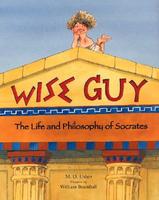On Sunday the Second Reading was from Hebrews 5 about how a priest is called, made and what he is supposed to do. The central role of the priest is to offer sacrifice for sin. The author of Hebrews speaks of the role of the High Priest showing it’s continuation from the Levitical priesthood into the Hight Priesthood of Christ and to the priests He handed on His authority to. The central part of the role has not changed. A priest offers sacrifice for himself and his people in reparation for sin.
In the old Covenant of course the sacrifice was conditional and had to be repeated and was never enough. Then Jesus came, fulfilled the sacrifice with His own Body, Blood, Soul and Divinity. He was the one High Priest whose sacrifice was “once and for all” never to be repeated. He completed the act of salvation for us in rising from the dead and now everywhere, all over the face of the earth where Mass and Divine Liturgy are said that once and for all Sacrifice with the risen Body Blood Soul and Divinity is represented for all of us.
But that wasn’t the part of the reading today that struck me. It was this line about the priesthood; (Hebrews 5:4)
And one does not take the honour upon himself, but he is called by God, just as Aaron was.
I’ve heard a few things recently, and a lot over the years about people who demand to be accepted to the priesthood. They insist they have a “right” to be ordained and that the Church has no business deciding whom She will and will not accept to ordination.
The fact is, from the very first days of the Church no one thought there was a “right” to be a priest just because you felt like it. The priesthood was then and is now a calling from God and He asks a mighty amount of those men He calls. They are to give up everything, take up the cross and follow Him. They are to serve vast amounts of people, many of whom are less than grateful.
I never hear the willingness to serve, sometimes in awful situations, from those demanding the “right” to be ordained. Their whole discourse is power and politics based and nothing to do with sacrifice, sacraments or service.
When I hear these people going on about their “right” to “power” in the church I can’t help thinking of my parish priest. I know from personal experience how much time he takes with the seriously ill. His care of my friend was excellent and I know she wasn’t the only one he showed such care for. He visits the sick and the elderly regularly. My son has met him at work, much to both their surprises. I also know from others about the quiet work he does to help mothers in crisis pregnancies. He doesn’t shout out his work. We hear along the church grape vine when people speak of how kind he has been. He sits with the dying, and comforts the grieving.
The day after my friend’s funeral, which was such a difficult, difficult day, I heard he had a funeral for a baby. No rest for him. Barely time to grieve for my friend who was his friend too.
God calls men like that, They don’t tell God He needs them. They don’t tell God they have “rights” and He had better take note. The Church tests them and ordains them. She sends them out to work and work. That’s not a right, that’s a vocation.




































































